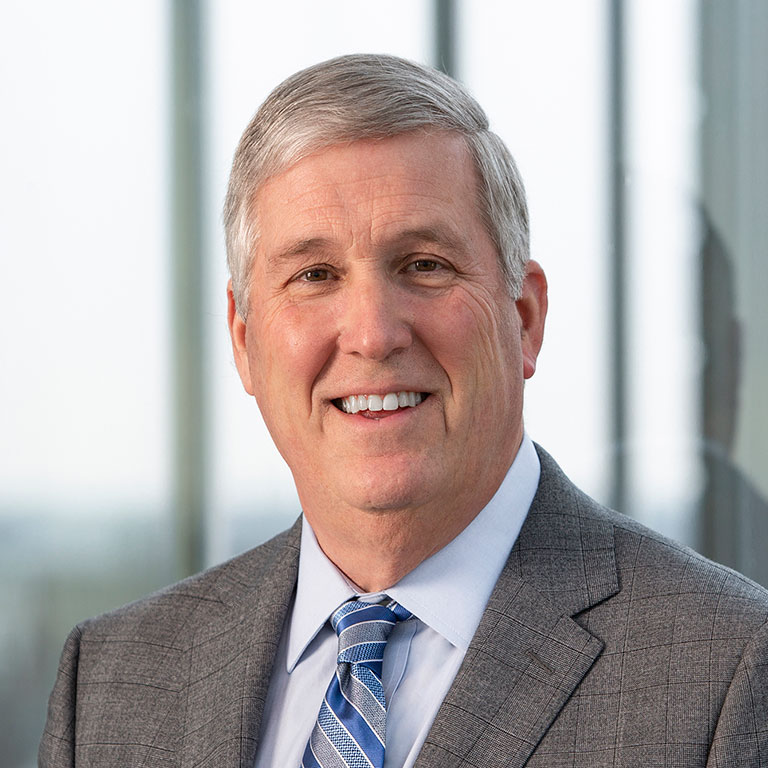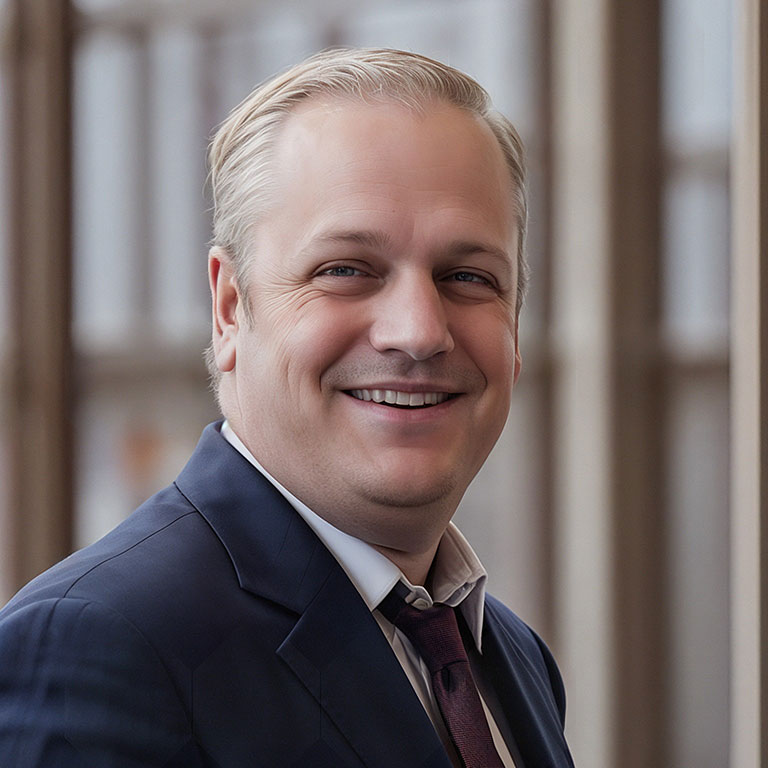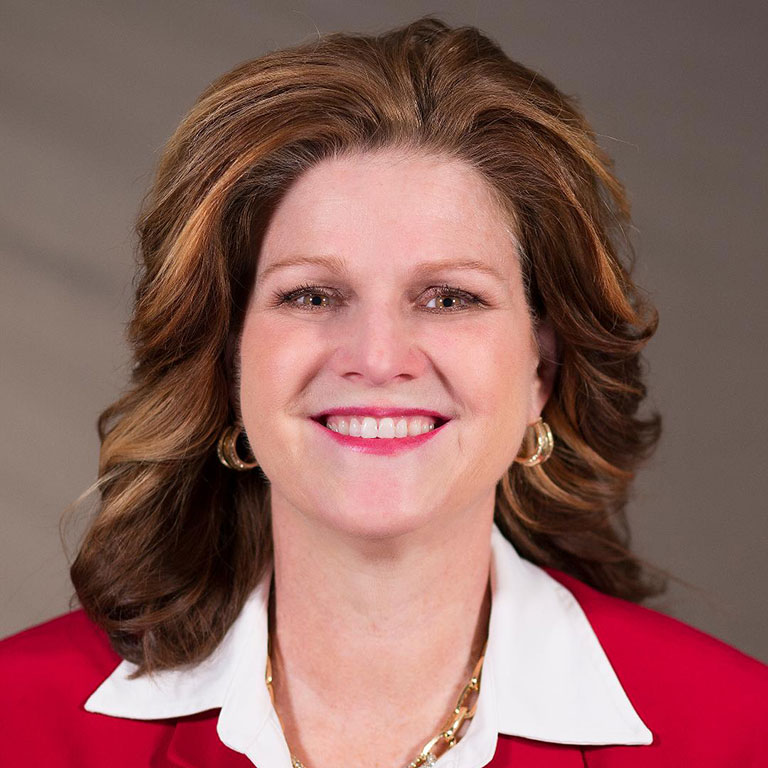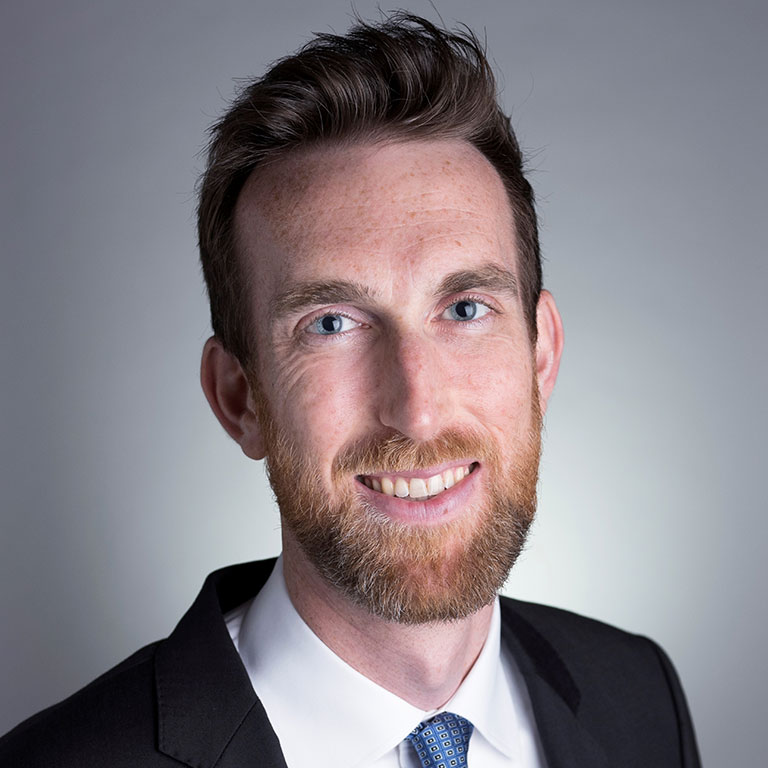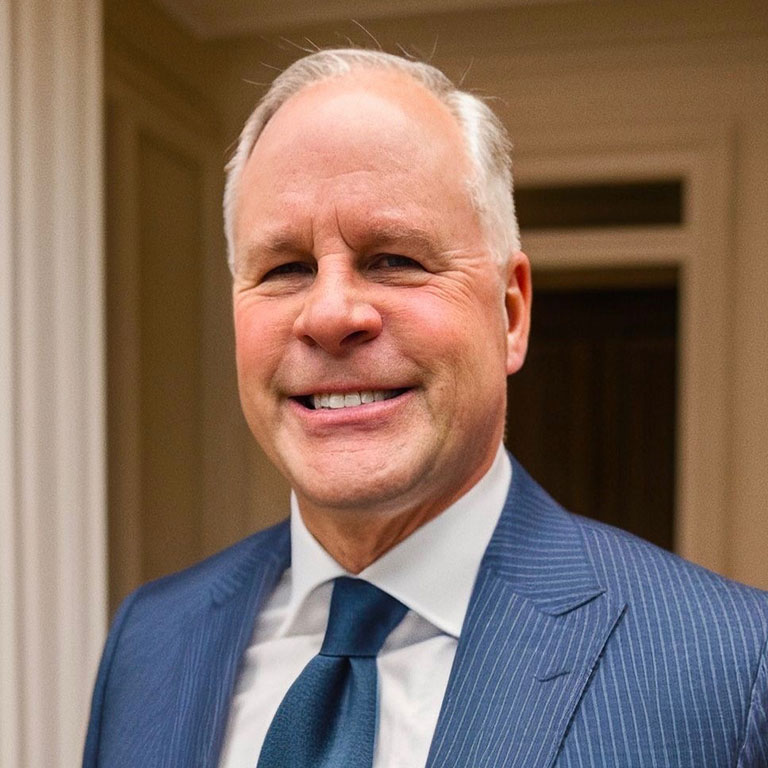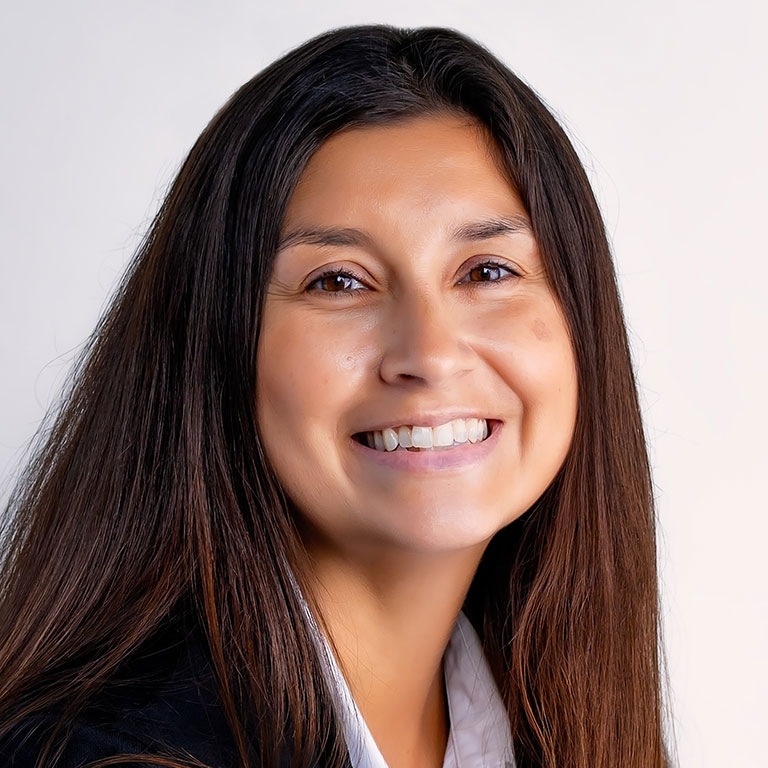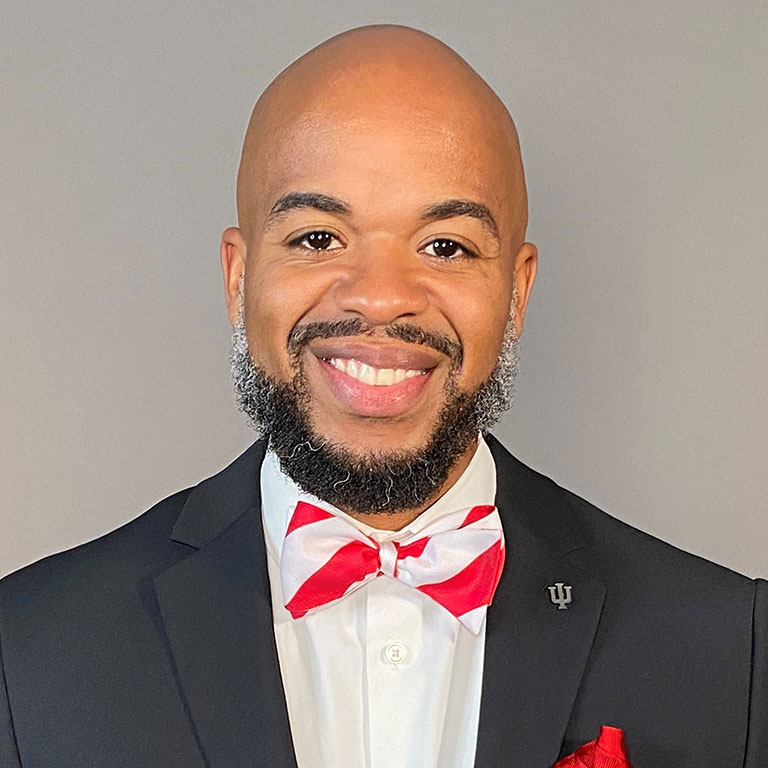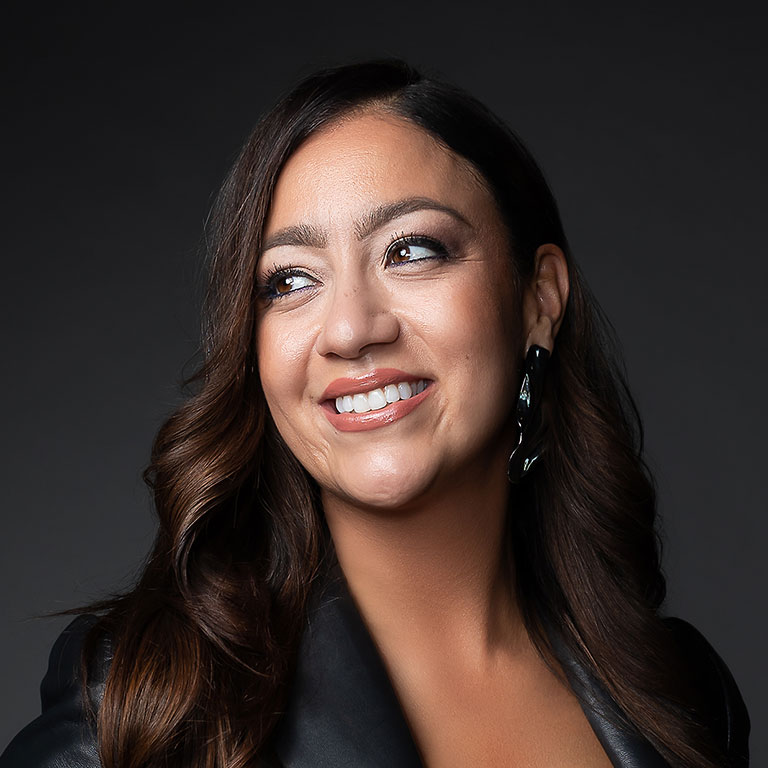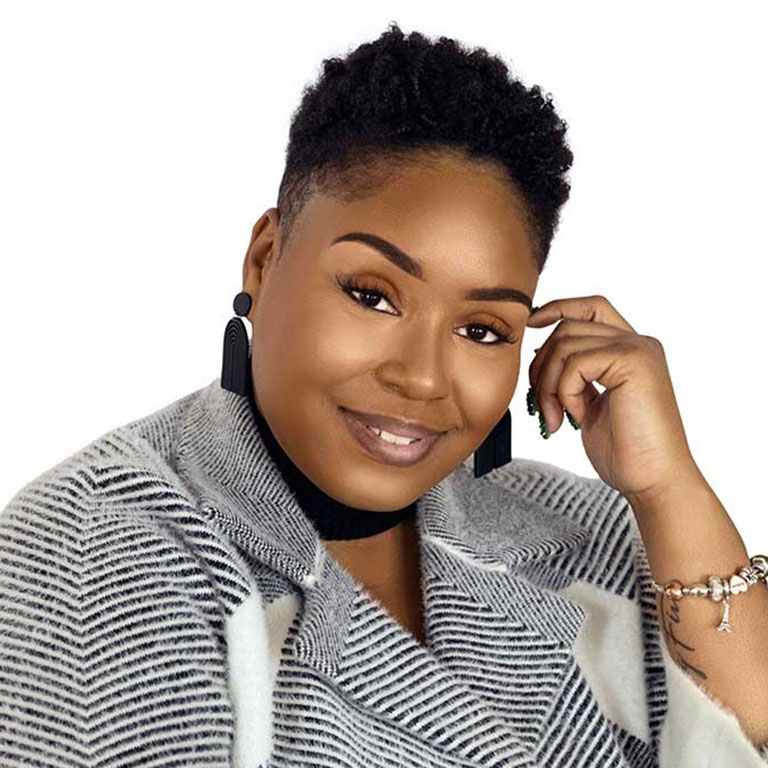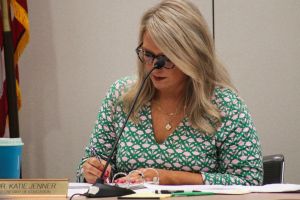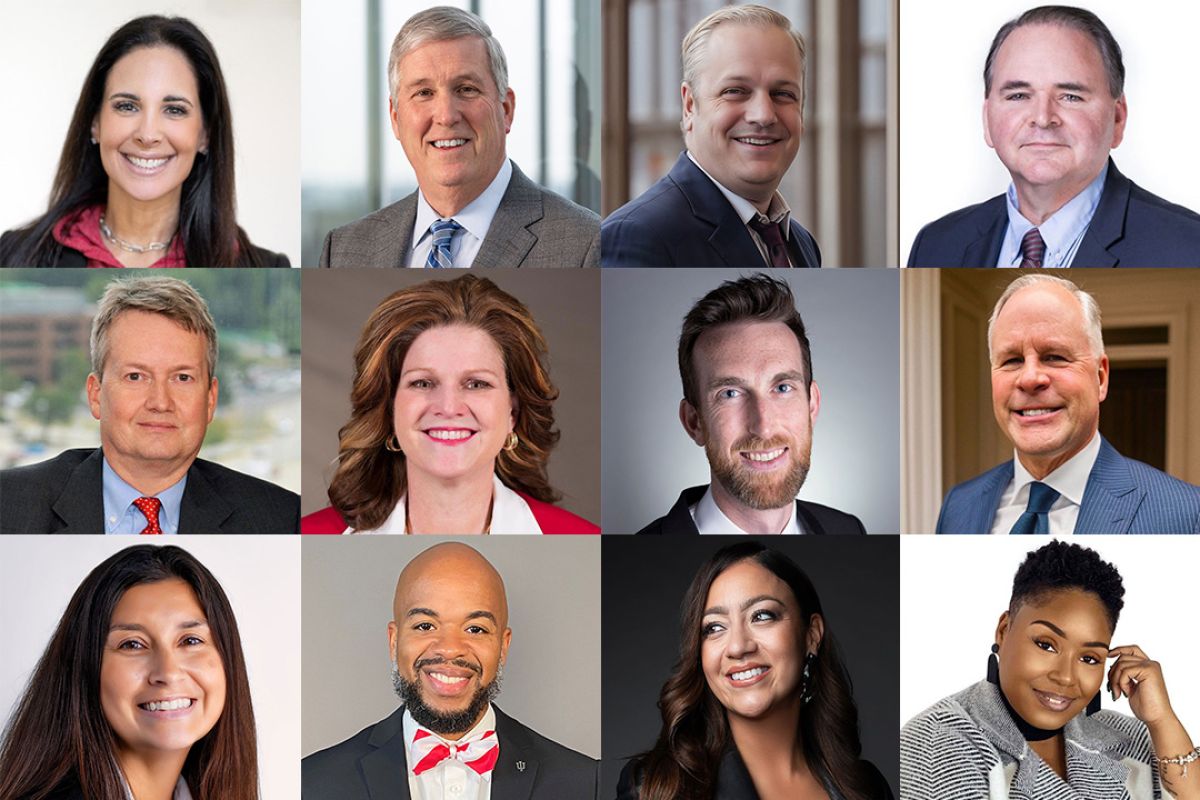
The 2024 IU Board of Trustees candidates. From top left: Jill Maurer Burnett, Ray Dusman, Andrew Flittner, Phil Fowler, Robin Hall, Becky Mateja Lombardini, John McGlothlin III, Joseph Meek, Christina Mendoza, Jeremy Morris, Patricia Mota and Ellise Antoinette Smith. (Photos courtesy of the trustee candidates, photo illustration by Katy Szpak)
The Indiana University Board of Trustees is the university’s governing body. They are responsible for policy and finances at all IU campuses. Members are not paid, but they receive “a small per diem when fulfilling their responsibilities, and all expenses related to board activities are covered,” according to the website.
The trustees serve three-year terms, except for the student member who serves a two-year term.
IU alumni elect three of the seats. Alumni can vote on one seat each year.
The other six, including the student trustee, are chosen by Indiana’s governor.
The current alumni trustees are Jeremy Morris, Donna Spears and Vivian Winston.
This year, Morris is running for re-election against 11 other candidates. He serves as the chair of the academic affairs and university policies committees.
Read more: ‘Our Beyoncé of higher education’: IU board awards President Whitten $162k bonus
To become a candidate, each person must gather 200 signatures from IU alumni; these are cross-verified in IU’s internal system.
Alumni can vote online or request a paper form by contacting Amy Cope, alumni trustee election coordinator, at truselec@indiana.edu or 812-855-6610. Voting opens at midnight June 1 and closes at 10 a.m. June 28.
Each candidate was interviewed over the phone, except for Morris who did not respond to multiple requests. The candidates were asked to provide some general background information about themselves, and respond to these three questions:
- How will you represent the faculty, staff, and students and their concerns?
- What is the No. 1 issue you want to address if you are appointed?
- How do you give back to the IU community?
Here are their responses, edited for clarity. The candidates are listed in alphabetical order.
Jill Maurer Burnett • Ray Dusman • Andrew Flittner • Phil Fowler
Robin Hall • Becky Mateja Lombardini • John McGlothlin III • Joseph Meek
Christina Mendoza • Jeremy Morris • Patricia Mota • Ellise Antoinette Smith
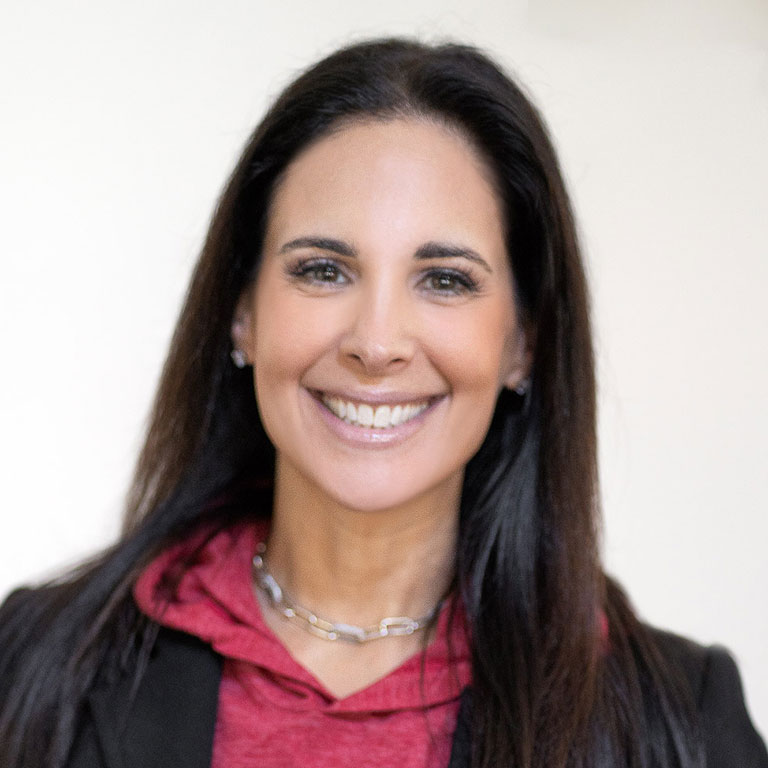
Jill Maurer Burnett
I'm married, almost 24 years. I have three children: my oldest just graduated from IU, my middle daughter is going to be a junior at IU, and my youngest, today is her last day of her junior year of high school, so still deciding where she’s going to go to college.
I met my husband at IU. I graduated from the Kelly School of Business and now I've worked in that field. And then once I started having kids, I shifted toward nonprofit and things like that.
Learn more: Candidate statement
My experience on many boards and being active in the community has definitely made me want to be more active, but I have a passion for Indiana University Bloomington since I went there, my father went there. My brothers each went there for undergrad and law school.
I'm very excited for the opportunity to run for this position. I'm excited to be part of IU in a more dedicated way and to learn what is needed, and hopefully make IU a better place than it already is. So I'm excited to hopefully get the chance to do that.
How will you represent the faculty, staff, and students and their concerns?
Well, that's a hard question to answer since I don't have any experience on this board or other boards in college universities yet.
I would say my first order of business is to figure out what is needed on each campus, what the faculty needs, what students need, and hopefully then learn from everybody and feel where my abilities will be the best help in fulfilling everybody's needs.
What is the No. 1 issue you want to address if you are appointed?
I do believe that there's a problem with safety on our campus, with everything that's been going on, with the things on Dunn Meadow and the camps and things like that. And I just want every student and faculty to feel like they're being heard, but at the same time abide by the rules and standards of not only Indiana University, but also Bloomington.
So, I do feel like there could be a safety issue. That's my concern as August quickly approaches is that I want everybody to feel like there’s a safe place on campus.
How do you give back to the IU community?
We attend family weekend, we attend basketball games, football games and we've seen shows down at the IU Auditorium. We were there more the past couple years, since I had two children there. Now I only have one, but we go to events at the law school because the law school is named after my father. So, we do that kind of stuff.
I also attend things that I'm invited to as much as possible through faculty and higher-level administration.
So yeah, I would say that we try to get down there as much as possible, but at the same time as the mother of a child who attends school, we don't want to overcrowd and make them feel like they're not far away.
Ray Dusman
I'm Dr. Ray Dusman. I graduated in ‘79 with my bachelor's in chemistry and biology from the IU Bloomington campus. Went on to medical school in my home state of New Jersey and then subsequently completed six years of internal medicine cardiology training at the IU medical school in Indianapolis, and then went into practice of cardiology in Fort Wayne — which actually is my wife's hometown — and practiced cardiology for a little over 25 years.
Learn more: Candidate statement
In the meantime, I had overlapped with administrative work and now I work full time administratively as the Vice Chairman of Parkview Health, which is our regional health system. I'm president of the clinical aspects of Parkview Health and our physician group safety, quality of our hospitals, etc., and I've been doing that full time for about 10 years.
Probably 15 years ago, I went back to school to Notre Dame and received an MBA.
I've received a lot of emails on a variety of current topics and opinions. I think to be an effective leader at the trustee level, it's an objective, open mind — I would say for me — and especially to collaborate with fellow trustees and events.
I've been asked a number of times my opinion on current events, and frankly I just have really not wanted to speculate or make assumptions that are incorrect. I feel that I have a very supportive approach.
To those that have been leading the university, in both the trustee and administrative perspective, I think we all need to work together for common goals.
I would say performance on those goals is an extremely important aspect of what trustees are asked to do.
That's been part of my career today in healthcare as a healthcare executive, and I'm looking very much forward to working with the leaders of IU and the trustees, if elected, to see how I can contribute to the overall success of the university and help everyone.
How will you represent the faculty, staff, and students and their concerns?
I think the role of the trustee is really about governance and it's about setting expectations around a strategic plan. It's about measuring performance and it's about having the right people — specifically the president — in a role that facilitates the success of the strategic plan and the outcomes that are in place for the university. It's not management.
My background has been, I would say, multidisciplinary in the sense that I've been involved with the academic setting with clinical research, in which I participated. I’m now a healthcare administrator, but I've stood up training programs in the medical field.
I've had a position previously at a small private university and have seen the challenges at that size of a school. I think I bring to the role of background as an educator or researcher, a clinician.
I'm the only physician that's on the ballot and would be the only physician on the board if elected.
I've been involved with the School of Medicine, which is the largest in the country, for a number of decades. I've had a clinical appointment as a teacher at that institution on the Fort Wayne campus.
And then my current role is executive oversight for a large health system that has over 16,000 employees, including 1,200 physicians and advanced practice clinicians or nurses, and over 4,500 nurses.
And so, a large clinical enterprise has, I would say, a lot of the same challenges that the university has when it comes to the workforce, financial pressures, and the role of strategic planning. So, my approach as a trustee would be very similar.
It's a focus on the strategic plan and it's a measurement of performance against that to really facilitate the success of the stakeholders in the university.
I think some of the more recent challenges point out tension and gaps, certainly between certain faculty members and the university president and other administrative leaders.
I'm not really privy to the exact details and all the discussions that have gone into that gap, but I know from previous experience that the closer that the faculty and the administration can work together, it really is to the ultimate benefit of the students, which is why the university exists in the first place.
Whatever activity can identify those gaps and work towards closure, or at least certainly getting to a common understanding around the strategic goals of the university and then how to approach that to the students benefit, would be necessary and a very healthy next step. My assumption is that that work is already ongoing, and the success of that will be to everyone's benefit.
I like the 2030 strategic plan, and if all the stakeholders — the administration, University leadership and faculty leadership — are aligned around those goals and they're accomplishing what's done to accomplish them, it will fall into place.
When there's misalignment of why certain goals are in place or what's trying to be achieved long-term for the success of the university, that's a discussion that probably needs to have further efforts and clarification so that everyone can be on the same page as far as the overall strategy to make the university even more successful over time.
There's just a lot of pressures on universities everywhere that, you know, there's pressures on enrollment, there's pressure with the so-called enrollment cliff where there's just going to be less students matriculating in the future. So, there's going to be even more competition for students.
We know that students are seeking education opportunities in non-traditional ways, including maybe not even considering university education. And then that also gets to the perception of the value that students receive for their education. And I think that's in flux, as the workplace changes, as the cost of education becomes more of a barrier.
So, I think students as consumers are rethinking the value proposition. So, the university needs to have flexibility on how to appeal to a wide variety of students for what they have to offer.
For all of us that are serving communities, our goal really is to have a necessary and sufficient workforce in the future that has the right skill set, has the right number of folks that come into the workplace, and I know that the 2030 plan for Indiana University really has student success as a pillar of that plan.
I think that to me it is a great thing, and the other aspects of the pillars have to do with leveraging and expanding the research expertise of the university. And given the fact that IU is a state-funded institution, giving back to the state of Indiana a value for that investment.
I think it hits all three necessary pillars for the future.
What is the No. 1 issue you want to address if you are elected?
I really don't come into this election with a predetermined agenda. I'm coming in more from the perspective of my background, experience, and skill set, and how I can apply that in collaboration with fellow trustees and with university leaders. So that really is my interest and how I feel I could be most effective.
I look at the diversity of the board of trustees, which is excellent. I do feel a missing component is a physician, especially with the largest medical school in the nation. So, I think I bring a complementary skill set and background in that regard, but I don't really have a personal agenda on any number of items.
To me, the success of the students is foremost. And what I can lend to help contribute to that ultimate success is essentially my agenda.
How do you give back to the IU community?
I've been a clinical associate professor of medicine at the School of Medicine. I've spent a number of decades as a teacher. I have posted residents and medical students for clinical training. As I mentioned, I'm a cardiologist, and I personally would host students so they can acquire clinical skills in their training.
I've been active in clinical research, and so I participated in, for many years, in a fairly unique summer program where undergraduate, graduate, and medical students participate in a clinical research project, and so I served as a mentor for that. I've taken a couple of students to national meetings to present their work.
More recently, I've started graduate medical education programs in Fort Wayne to advance education and general surgery, internal medicine, physical medicine, or rehabilitation soon to start obstetrics and gynecology.
From an organizational administrative perspective, I've been very supportive of program development in the medical field. That's not necessarily directly related to IU, but our programs are either directly with IU or are collaborative with them as far as being resources for clinical training.
Then, I would say the other thing which is really not on the academic side of things, but I've been taking my youngest daughter since she was four years old to basketball games, consistently. She's 31 now. We've been season ticket holders for football and basketball for many, many years and are very supportive of the athletic department and the efforts there.
We derive a lot of personal enjoyment from athletics.
My freshman year in college, I walked on to the cross-country team only to find out that there's a huge gap between the talents needed in high school and those needed at a Division One school. It was a really awesome way to start my college career — a very humbling way to start my college career. Also, I became a very avid bicyclist and participated in the Little 500 the following year.
Andrew Flittner
My name is Andrew Flittner, I'm from Carmel, Indiana, and I'm running for IU Trustee. A little bit about me, I have four degrees from Indiana University.
I received my undergrad from IU Bloomington in 2005, a bachelor’s in public and environmental affairs.
I earned a master’s in public health policy from the IU School of Medicine in 2008, and then I graduated with a health law concentration from the IU Law School in Indianapolis in 2012.
Learn more: Candidate statement
And then in 2022, I received a master’s in policy analysis from SPEA at IU Indianapolis.
I've worked with and been around the IU system for almost my entire adult life, and I'm excited to move forward with the university. I look forward to the election starting at the beginning of June.
I think my record in my commitment to the university is certainly shown with the amount of time and energy that I put into my IU degrees.
One of the coolest things for me is I've spent a lot of time learning from the university, taking that information out into the world, right? Using my degrees, using my knowledge to impact people and communities in the state and across the country. And now, I would like to give back.
Being on the Board of Trustees, to me, is an opportunity to go back to where it started, and to improve, to make the university better, and to pass that torch on to the next generation of students and leaders with the university.
So, I'm optimistic and looking forward to the next few weeks of campaigning, etc., and looking forward to finding out what these results are going to be here at the end of June.
How will you represent the faculty, staff, and students and their concerns?
My website has a little bit more information on this. It highlights my three main positions, but the first of those is academic excellence.
I have concerns about IU losing standing in its programs and sort of as the premier academic institution in the state of Indiana.
Purdue has been growing, exceeding, and winning, and I tell people they're winning on — and off — the court. Purdue has done a really fantastic job of growing their programs, and I don't believe that IU has kept pace with what Purdue has been doing over the last probably 10 years or so.
I think a lot of their programs, innovations, etc., are things that we should be focusing on looking at and seeing what we can do better.
So, academic excellence to me means that you want to have great programs and a great value proposition.
As I talked to friends and colleagues and family members who have high school kids that are approaching college, I'm hearing more and more from people — you know, is it even worth it to go to college?
And I think if somebody says, “Is it worth it to go to college?” and they say that their kids got into Harvard, well, then, the answer is always yes, it’s definitely worth it to go to Harvard, right?
But I think that IU should be in that mindset for people in Indiana, like, hey, I'm going to strive to go to IU. IU’s a great school and if I'm able to attend IU, if I'm able to make the marks and I'm academically eligible to go, that's a great program and I want to pursue my higher education at Indiana University.
Community college is getting more expensive every year, so the university needs to have high standards and to meet those students with the expectations that they're having coming in with the money they're spending.
My second main point is accessibility.
I believe again that if you have the marks, if you're able to get in, if you meet the guidelines that IU sets out, regardless of your background or anything else, you should have the opportunity to attend one of the IU campuses.
I'm used to dealing with some inequalities, and in my professional career I've worked with people on Medicare and there's a lot of information that's not presented in a great way, and there's a lot of people who don't know that they can or should be accessing certain benefits in certain ways.
I would like for students to be able to figure out programs and other things that create accessibility.
I think that a lot of the smaller campuses, the regional campuses for IU, I think there's an opportunity there locally with some of the high schools and some of the local communities to partner and to promote the IU system heavily. Those kids that are in high school, figure out ways to get them into the IU system onto the campuses and achieving — even while they're in high school — so they're moving forward as future Hoosiers and certainly with an opportunity to come into the IU system if they're able to, you know, meet those guidelines that are set up.
My third main point is accuracy.
I don't always feel that the trustees are advocating for everyone involved.
You can look at the stakeholders: you have the students, you have the faculty, and you have the alumni advocating for students. You're working with them, figuring out what they need to succeed, what they need to be better. What are their goals? What are their aspirations? What do they want for my IU? Because they are the current generation of students. The faculty have different goals and different mindsets, but I believe that in some ways they're going to be aligned with what the students want.
We need to pull those commonalities and find that common ground and prioritize the things that are the most important.
For alumni, the value of your degree is placed in the hands of the current students, of the faculty and of the trustees. The decisions that these folks make directly impact the investment that you made in your education.
With four degrees from IU, I spent some money in the IU system. I'm fortunate that I was able to pay for most of my graduate degrees by myself. My parents helped me out with my undergraduate degree, but the value of that degree, the money that I spent is big. I want to make sure that the future generations of IU students are able to receive the same value.
Again, we want to increase the value of those degrees every year, so that when somebody says “You went to Indiana University,” that means something. I want to advocate for all of that.
What is the No. 1 issue you want to address if you are appointed?
I can see that there are some issues that popped up, and maybe calmed down a little bit, but there's one issue that I see at IU right now that I feel needs to be addressed above all else.
And obviously, there's some faculty and students that have concerns about the leadership at the university right now, and those students who have those concerns with the leadership, I think we need to find out exactly what those concerns are. What caused those concerns with the leadership — specifically with Pamela Whitten.
I don't believe the current trustees are addressing what's going on with the students or the students' concerns. They're simply saying that they support the person that they picked.
When I see that the vote of no confidence was put through and such a high percentage of people said this, that's not something you just release a statement on.
I believe a committee should be put together, and they should focus, do a study, and talk about what's going on. You know, is this a concern about academic excellence or accessibility or advocacy, right? What is everyone concerned about? What can Pam Whitten do to address these concerns?
Or if she's not able to address these concerns — come to some common ground and work with these stakeholders to make the university what it needs to be — then that's a conversation about the future leadership of the university.
How do you give back to the IU community?
I, like many other alumni, attend IU’s sporting events.
I interact with a lot of IU alumni at a very interesting time in their life. I work with people in Medicare, people who are retiring, and I have a ton of clients that are IU alumni. I visit with them, talk to them about their concerns, about other things.
I have a small group of friends from undergrad and grad school that I still keep up with and get together through various events from time to time. And then professionally, I have a number of IU contacts. We get together and talk about things. A lot of times it's the groaning and complaining type stuff, but that input is so important. Having your ear out there to what the community thinks, having those conversations is the way I have stayed involved.
Phil Fowler
I grew up in Clarksville, Indiana, which is a pretty small town on the Ohio River across from Louisville. I graduated [from high school] in 1990, went to Indiana University Bloomington. I graduated from the Kelley School in ‘94. Then I went to law school at Vanderbilt.
I moved back to Indiana right after law school and started off in Fort Wayne. Moved to Zionsville — a suburb of Indianapolis — and I’ve been here since ‘99. I have two teenage daughters.
I'm the Senior Vice President and General Counsel at the Indiana Economic Development Corporation. We’re the state's economic development arm, and I've been there for five years.
Learn more: Candidate statement
I'm running because I have a great love of IU and what it did for me. I try to stay close to the university and I want to get involved and I want to help.
How will you represent the faculty, staff, and students and their concerns?
I'm well aware of the no confidence vote for Pam Whitten that the Bloomington faculty issued, and their concerns with her leadership and some things that have or haven’t happened since she took over.
I'm deeply concerned about it, because when that many faculty are concerned you need to listen. I think that's one thing I can bring to the table, to be able to listen. I will say I may not agree with all of their concerns, but we ought to work together. The administration ought to work together with the faculty and with the students to try to resolve the concerns as best we can.
I think that there's a disconnect, certainly in Bloomington, right now and I'm not exactly sure how it got to be that way. But as a trustee, that definitely would take priority, trying to bridge that gap between the administration and the Bloomington staff, faculty and students. That would be a priority of mine.
What is the No. 1 issue you want to address if you are appointed?
An issue that should be of interest — to the faculty and students, certainly to alums, and hopefully all the students that will be alums someday — is IU’s perception in the marketplace right now.
We are ranked in this year's U.S. News and World Report Rankings, 11th of the 13 public universities [in the Big Ten]. Northwestern's private, so they're not included, but we're No. 11. I think that would surprise a lot of people. In fact, it surprised me. But that perception of being on the lower tier of the Big Ten affects all of us and the values of our degrees.
As a trustee, I would insist that we create a task force to study why that is and what we can do to improve those rankings. I would want to have measurables that the task force, with the letter to the board, could act on.
How do you give back to the IU community?
I go to the games. In fact, I went to my first baseball game not long ago. And I'm down in Bloomington quite a bit. I did go past some of the recent protests just to try to understand what was going on. I signed up with a new network called the Kelley Alumni Network, that I'm a member of, that is trying to get more involved, looking at volunteer opportunities. I have spoken with some faculty about some of the issues that they have raised, trying to get first-hand knowledge of what their take is on the situation, and I would do that independent of running for trustee. I just care about IU, and I'm trying to understand more about the challenges it's facing right now.
I hope people are paying attention and the alums vote. Last year, we had about 10,000 people vote. We have about 775,000 alumni, so that's about 1.3% voter turnout, which I think all of us would agree is not impressive. So, I want the alumni to be more involved and take an active role in electing the board.
There are three elected trustees out of the nine, so it's important that the three people who are chosen represent the alumni and are working hard to do their best to improve IU. There are 12 candidates this year. As far as I'm concerned, it’s about leadership and judgments, and not about catchphrases or buzzwords. I believe I have those things, I believe I have a lot to offer, and I will give it my best if given the chance.
Robin Hall
I grew up in southern Indiana. I’m an IU Kelley grad. I went to law school at Northern Illinois University. I lived in Chicago for a while, I was in the investment and banking area. And 18 years ago, I formed my own investment firm that became fairly successful.
Learn more: Candidate statement
I became interested in IU just by reading about what's going on. I’m a little concerned about the lack of transparency. I feel like Indiana University taught me a lot. I learned a lot while I was there and I’m looking forward to giving back, from my financial expertise and expertise in other areas I could contribute to the university.
How will you represent the faculty, staff, and students and their concerns?
I am interested in representing all the campuses. I know there are a lot of barriers in making the university system as uniform as possible, so better ease of use for students and increasing transferability. People's lives change, or they're trying out a few classes and they feel like they can pursue their education at another location, the system should be set up to accommodate them.
I consider myself pro-student. I think the university, and what it’s for, is an educational institution. I know there's a lot of things where it’s pulled in a lot of different directions. At the core, it’s about educating each student that wants to get an education. The focus should be on producing the best trained graduates possible to go out into the public.
I've taught a little bit myself in a university setting, not as a full faculty member. So, I have some idea of what that’s like. I'm very interested in supporting the faculty. You can't educate without faculty. I'm most interested in focusing on the core purpose of IU, which is educating students through the best faculty possible, and compensating them in a way that’s appropriate.
What is the No. 1 issue you want to address if you are appointed?
The lack of transparency. I know the board of trustees has been called out a couple times for violating the Indiana Open Doors policy. I may have already said this earlier but that's what originally came to my attention. I mean it is a public university — taxpayer funded, at least in part — and I think everyone who is a stakeholder at the university has the right to know what's going on. So, that's what originally brought me to want to run.
Obviously, there's some other issues recently. I think it was handled poorly, at least the Dunn Meadow incident. I think the response was poorly handled. I’m also concerned about the response. I know President Whitten has been having some listening sessions. I’ve read the official transcripts of those. I am a little concerned about the lack of acknowledgement of mistakes. Obviously, this wasn't handled in the best way possible. I think it's pretty clear from the result that no one came out looking good in that situation. And if you can't admit that errors are made or mistakes were made, I don't think we're ever going to be able to avoid these types of issues in the future.
And I don't think this is what IU wants to be known for. I think it wants to be known as an outstanding institution of higher learning.
I know this happened on a lot of campuses, some universities handled it better than others, but I'm pursuing a position at this university, so I'm focusing on it.
I don't know that the listening tours are going to work if everyone is dug in and no one’s really listening to what everyone is saying. Everyone's just restating their position again and again, so I guess I would have liked to see some acknowledgement.
I'm also concerned about how the policy was changed with respect to the 1969 policy, although I haven't actually seen it, I’ve seen phrases of it.
There's some disagreement as to whether it was clear, if it was confusing, and that's why they had to change it.
This goes back to my transparency problem. These changes were made by a committee that was thrown together at the 11th hour — I think with the pre-intention of making the change rather than evaluating the situation.
I know there are policies and procedures at IU to change policies and procedures, so I just think they need to be followed, and I don't think, again, this was done with full transparency and in good faith.
I am concerned about the lack of turnover on the board. I have nothing but praise for the people who do this and run and get elected.
But I think there's nothing better than fresh ideas and new people. That's why I made the pledge that I was going to serve one term. New ideas are important, people with a fresh perspective. I'm a little concerned that there's maybe some collective thinking going on with it always being the same people for multiple years.
How do you give back to the IU community?
I visit the campus often. I was in a fraternity that's no longer there. I live in Indianapolis, so I've actually been more involved with IUPUI. There's a lot of programs there for STEM research and some other innovations-type projects that I've helped with: scholarships, funding students who couldn't attend, providing the funds to allow them to attend. I also funded a project dealing with retina reattachment, provided some seed money that ultimately got greater funding and financing in the patent, so I've tried to help where I can.
I spend a lot of time running and managing my own company. Obviously, if I'm elected, the board is going to be a primary focus of mine. I'm not doing it to pad my resume, I'm past that point. I'm doing it because I really care about the school and I think I have something to offer.
I have no preconceived notions — I have no real agenda other than my own. I want to listen to all the facts and make decisions. Unlike people who are already on the board, I'm not privy to as much information as they are. I don't really have any more information than any other person in the public, so I've tried to educate myself as much as I can, read as much as I can to answer people’s questions.
Becky Mateja Lombardini
I'm from Northwest Indiana. I've taught at IUN for over 20 years, taught 10,000 students, and I'm an IU graduate.
Learn more: Candidate statement
Beyond that, what qualifies me? Just a plethora of different education, experience and energy. I grew up here. I’ve had some folks tell me, “You're in the Indiana Basketball Hall of Fame?” And I'm like, “Yes, I am,” like that's going to get you votes. I'm like, “OK, alright, we’ll see” with that one.
I have my master’s from IU, I was a Rotary scholar to Australia. I played basketball in Montana. Great conference, great education. Brought that back here. I've been back in the state for probably 30 years now, got three kids.
I worked for Johnson & Johnson, I think that was a really pivotal time in my life. A great company. Then, moved on to the Community healthcare system and then started my own business with Vision Quest. I've been doing a myriad of consulting, including — probably a great claim to fame — key to Congressman [Frank] Mrvan’s win up here in NWI. We were friends and he's just a really good man.
I'm a moderate. I'm in the middle, and I say, like any mom, I have to listen to everything and then come up with the best decisions. That's the kind of MO I work with.
I know I've gotten a lot of questions. Like what am I going to do for everybody? You know, they all have their agendas, so I'm pretty much the only one out here, as I see, of the trustee candidates. And that should tell you something. I have a voice and I’m wise, consistent, and sometimes assertive on things that we need to look at.
How will you represent the faculty, staff, and students and their concerns?
I've talked with other trustees. I've gone to events. I've been at all the campuses because I went to almost all of the graduations and I'm a traveler anyway. I played sports and my dad played for Purdue. My kids play, so I'm all over.
I was telling somebody, I'm your phone-a-friend for anything college-related. You know, colors, mascots, that sort of thing.
But in this situation, because of the climate and IU being the type of university it is, there's a lot more to this.
So, the three reasons: first is safety of the students, second is access to education, and third is that they're well prepared.
I’m going to start with the safety aspect.
I have a concern about that, our institution. You can make decisions, certainly make decisions, but you can't be fraudulent about them. You can't make up issues about somebody to remove them.
And I think that's similar to something that's happening to a faculty member down there [in Bloomington].
We have to have voices. I know the graduate students I talked to, some of them, about living wage jobs, voices at tables, peaceful protesting. Those are all constitutional, democratic ways of life.
The biggest thing for me when I said safety, and this is something that I got involved with before the trustee [process].
There was a young girl killed with fentanyl last year. One of my daughter's good friends, and by a person near the campus who's on parole, and that just bothers me so much. I think this is the best way that I can, you know, effect some change on that.
What is the No. 1 issue you want to address if you are appointed?
I think my No. 1 might be my modus operandi. How I work. I lead, I’m wise, I set an example.
I'm sure these types of issues that are going on are related to processes and how we treat one another and are we following the rules.
Like I said, you've got to do things in the right way. You can't just be unilateral. You can't, and I think we fight this all the time.
There's six [board members] appointed [by the governor] and three who are chosen [by alumni.] So, you're fighting kind of an uphill battle.
I don't know if you're trying to get at like, can I vote to get her [Whitten] out of there? People are like, if you do that, then we're going to vote for you.
We have to certainly do the processes correctly. I've seen that some of them are not going correctly. So, I definitely will bring that up and be like, "Well, why is this happening?”
So, they called an Executive Board meeting. There’s probably a couple of these issues that are on the paper. And then in June, they have a 25-page agenda. So, they are doing other business besides these hot-button issues. There are quite a few people and there's quite a few issues.
If you look at my resume, I've done a lot. One of my coaches told me, "You know what you have is great, but what you do is, you make others around you great." So that's what I'm going with.
How do you give back to the IU community?
I've got a lot of energy. I'm always very positive. I'm involved and supportive and my kids are that way and I think, "Geez, you know, maybe you guys should sleep, too."
I did mention this — I'm involved because I teach [at IU] and I have kids there. I donate to the art exhibits. I promote events. I help recruit, you know, I’m a basketball player. I was on the wellness team. I still do that in the community and for the nation, and I support, I mean, I'm a cheerleader for athletics.
I think one of the great things about me is not only am I involved, but I support.
So not only in Indiana, but like I've traveled the world and when people see me and they're like she's from Indiana, she's an American, she's a Hoosier.
I think that whole mix is so valuable and saying “Hey, we’re IU, we’re Indiana, we’re Hoosiers,” and as I think my statement says, I want to make sure that we're viewed as an environment where these kids are safe, they have access, and they're well prepared. I think some of this that's going on will help them, and already I’ve gotten my kids involved in this and staying in touch with all of them.
I've even talked about doing something more with the alumni up here. So, I actually have about 10 more events to do next month to be in touch. I've already was doing them.
And so, one of my statements, ensure that they have stellar experience that will do great things, drawing on the foundational principles taught throughout the IU system that I've been involved with for a quarter of a century.
I don't think any other candidate has been in education or a teacher here — have been involved in the system — as I have. I think that really tells what kind of person I am.
John McGlothlin III
My background through IU is I was a master’s and doctoral candidate at IU Bloomington. I earned my master’s in 2011 and my doctorate in 2016. Then I taught for a year at the Kelley School of Business.
Learn more: Candidate statement
I've been back in my native Texas for about seven years now, working as a financial planner, and this is my first time running for the trustee position.
How will you represent the faculty, staff, and students and their concerns?
So, I would say a few things.
One is I like to think that it's a strong suit of mine when it comes to representing the concerns and interests of others. That is something that I'm required to do in my professional life. I’m a fiduciary because of my CFP certification. So, what that basically means is whenever I'm giving advice or making recommendations to someone, the first thing I have to do is hear them and understand their priorities and concerns. And those priorities and concerns are what drive any recommendations I make, any actions that I take on the client's behalf. I like to think that will hold me in good stead as a trustee.
One of the things that I definitely plan to do, and I've been trying to do this already, is reach out to current students, alumni, faculty and say, “Tell me what's going on from your perspective.”
There's obviously been some highly publicized issues of late, all of those have largely centered around IUB. I'm trying to get in contact with other campuses as well, just to understand how they're feeling.
But again, as a trustee, I have to listen first, and understand, and then I have to go and make recommendations and decisions from there.
One thing that I learned about recently, that I would strongly encourage the board to pick back up, would be in 2017, they often had university faculty council leadership attend not just the public board meetings, but also the private executive sessions so that there was time for everyone to talk and listen. And apparently that has dwindled since 2017 and I would love to get that back in place. I think that is extremely important because the board can only pick up so much just through news and talking with their network. I think this would be a formal arrangement for faculty to be able to speak directly to the trustees.
I would like to see a lot of similar policies implemented in terms of how the board functions running forward.
Specifically, to answer your question with the recent, high-profile events, mainly IUB and the protests at Dunn Meadow, I'm going to say the use of force is highly troubling by the Whitten administration. I think it's highly troubling that there have been high level calls for Whitten and other Provosts to resign from a number of different schools. The board up to this point has had a very univocal response, which is, “We believe in Whitten and we have no concerns ultimately other than we're going to start an independent investigation as to what went on at IUB.” To me that, at least publicly, suggests that the board and the higher-level administrative folks are just not willing to really listen to what some of the faculty are trying to say.
As a trustee, I think you're not doing your job if you are not hearing those concerns and responding to them meaningfully, as opposed to saying, “No, we're fully behind the administration,” which suggests they’re ignoring those concerns.
What is the No. 1 issue you want to address if you are appointed?
Yes, I think at this point it's hard to ignore the fact that there are some very meaningful conflicts that exist currently between faculty, particularly at IUB, but again not exclusively there, and certainly with large swaths of the current student body. I've heard from alumni that feel the same way that the current administration does not have their support.
And so that does not mean that I'm going to show up on day one and say, "We absolutely have to kick everyone out right now." But I think that the trustees need to be doing more to say, “We hear those concerns and we are going to respond to them meaningfully,” as opposed to just saying, “No, we have full confidence in Whitten and the Provost and we're going to do an investigation.” That doesn't feel adequate to me and I think a lot of faculty and students would say that does not feel adequate to them.
So, I would want the board to sit down and come up with something more meaningful.
I keep coming back to that word, but something more substantial, something that makes faculty and students feel like their voices and their concerns are being heard. Because right now I don't think that's the case. I think they feel more or less shut out. And with the Whitten listening sessions with faculty, from my understanding, have not been particularly productive. Faculty have not been feeling particularly well heard. So, if the administration is not going to listen to the faculty, students, and alumni, I think the trustees must. They must give voice to those concerns and demand more substantial action on the part of the upper-level administration.
How do you give back to the IU community?
Something I haven't mentioned publicly, but I'm happy to talk about, is I have been financially supporting the university in what is, for me, a meaningful way. I'm funding a small scholarship through the Department of English, because it's really important to me that graduate students in particular have the financial support that they need.
When I was a graduate student, it was a difficult time financially. From a learning, growing perspective, it was fantastic. It shaped who I am as a person and I’m extremely appreciative of that, but from a financial, healthcare perspective, that was difficult. So, I'd really like to make it easier for new generations of graduate students as they move through the system.
And then just staying in contact with the community, I’m still in contact with my dissertation director, for instance.
The last piece would be, I'm married. My wife is an Indiana native. All of her family is still there. Her sister is an IU graduate, and so we remain involved in the IU community through them and are conscious of what's going on through what they're telling us.
I'm well aware that I'm the outsider, literally, so far as I'm down in Texas, but I still have a lot of connections in Indiana. It's very meaningful to me, since I want to continue to contribute and to participate in the livelihood of the university.
Joseph Meek
My name is Joseph Meek. I'm a dentist from Greenwood, Indiana. I graduated from IU in 1986, and dental school in 1990.
Learn more: Candidate statement
I’m an avid IU sports fan. Since I was 12, I think I've missed six home football games, and I'm 60, so that's about one every 12 years, I miss a game. I've had basketball tickets for about 25 years as well, and I have baseball tickets, I don't get to a lot of games, but I make sure the people that want to go to baseball games have a ticket to go.
I decided to run for trustee sometime around Christmas. Just a lot of concern about higher education and the priorities of universities and how they pick their faculty, how they pick their students and the general direction of higher education.
How will you represent the faculty, staff, and students and their concerns?
There is a decrease in enrollment overall at the university. This doesn't pertain to the Bloomington campus because they are still at full capacity, but there's a problem on the satellite campuses. They're dropping enrollment, and we have to figure out a way of promoting those campuses and those students to keep those campuses full because that's when campuses work at their best when they're at full capacity.
I don't know if it's a question of tuition where we need to lower tuition on the satellite campus to incentivize students to go there.
I don't know if we need to open new programs or close programs that aren't profitable, but I think the Bloomington campus and other campuses need to create an environment where students feel like they're part of a community.
My fourth child is going to Indiana this fall, so I've had a 25-year-old through an 18-year-old there. It's really the only school they apply to, just like me.
I think that freshman orientation needs to be better. I have outgoing kids, and they didn't really gather friends their freshman year like I did when I was there. There's a lot of distraction for 18-year-olds now. They have their cell phones, they have computers, social media, lots of things that can keep them cordoned off from the rest of the world. We need to create an environment where those kids get out and meet other kids because that's the neatest thing about going to a university. You can learn a lot of ways, but it's really a special thing when you meet someone from another part of the country, and you learn about how they live their life. I had a suitemate from Italy, and I learned a lot about Italy when I was there. I just don't think kids today have that same opportunity of branching out to other students, so we need to kind of rethink how we're going to get students together better.
What is the No. 1 issue you want to address if you are appointed?
I'm a big advocate of hiring the best person. I'm honestly not a big DEI advocate. I think that there is a place for diversity, equity and inclusion in the way that we recruit faculty, administration, and students. But I do not think it needs to be our highest priority. We need to gather the best faculty and the best students and have the highest acumen that we can at IU.
We're falling a bit behind as far as comparing ourselves to other state universities of our size, and in the Big Ten we rank kind of low, and I don't think it should be that way. And I think sometimes we kind of take our eye off the ball, not getting the best student and the best faculty and administration. So, that would be an issue of mine.
How do you give back to the IU community?
I'm a big participant in football. I actually have 16 tickets for football. I make it an effort to invite lots of my friends to Bloomington to enjoy the campus on fall afternoons, and four tickets for basketball and baseball.
I was in Kappa Sigma fraternity, they're currently on probation. And I'm confused on the process when a fraternity gets sideways with the university, it just seems like a very one-sided agenda. The university puts you on probation or puts you on cease and desist, and you're just at the will of them as far as how you prove your case.
My son's fraternity, I just don't think they should be on probation at all, and they've been on probation for a year. I think there needs to be a better process in the Interfraternity Council on how they deal with the fraternity when they believe they're getting outside the lines of proper behavior, and more of an expedient way of resolving the case. They were told, “Well, there's been some other fraternities that have gotten in trouble with us and we're prioritizing dealing with their situation before we get back to yours.”
And to me, that's unacceptable. There's a limited time where some of these kids are in school and a limited time in which they can gather in a fraternity or sorority environment, and the university taking that time away from them without proper cause, so that's a small part of what I think I could take a lead on for change.
Christina Mendoza
My name is Christina Mendoza. I am an IU alumna of the O’Neill School of Public and Environmental Affairs. I'm a graduate of the class of 2000. And I live here in Chicago.
Learn more: Candidate statement
I've been here in Chicago for about 20 years. I'm currently working at US Cellular and have been there for the last seven years as a senior executive assistant. I primarily support the head of HR, our VP of Towers and Strategy, and I also support our Director of Diversity, Equity, and Inclusion and I serve on several different boards. So, I'm all about giving back to the community.
I'm so excited about this. I honestly didn't know that there would be all these kinds of stories and questions. All of this is super brand new to me, so I'm learning and that's really what has driven me to this, is I just want to learn more on how to be involved.
To get the nomination, I learned that there were 40 people seeking the 200 signatures. That's the largest that they've had in a very long time. The last time that there was an election, there was only one person running. So, you can tell that there is a big interest and then now out of the 40, there are 12 who are going for the spot.
How will you represent the faculty, staff, and students and their concerns?
I've been hearing a lot about the concerns of what's going on in Bloomington, and I have to say that from my current job, I really learned to sit back and listen a little bit. I really feel that I need to educate myself more on what's happened, not only with IU Bloomington but to all nine campuses, because I really feel that being able to listen and educate myself can help me best to understand what's going on, and then make a more informed decision. Right now, it's really hard to make those decisions just based on what is being sent to me and not obviously being there and living it like some other folks are.
So, my goal in this role would be how I can better be of service, and then how do we really get into having conversations with students and the faculty. And how does the board build those relationships so we can know more about what's going on in the day-to-day that can help make decisions that would benefit everybody.
What is the No. 1 issue you want to address if you are appointed?
The top issue that I feel needs to be addressed is representation. If you don't know, Chicago has the second largest alumni population outside of the state of Indiana. And as of right now, the nine trustees and the folks running, they're not in Chicago. And I just feel that’s a big mistake for the Board of Trustees not to have that voice or that representation of a huge alumni population and missing their voices.
So, I really want to bring representation to the forefront. I feel very strongly that not only it should be raised — you know, background, male, female, should be represented — but also different schools on the board. Seeing all the different schools that IU has to offer, and not just seeing one school, all the trustees coming from one school.
I've talked with a couple of students that are there on campus, and I'm hearing a lot about buildings that are not handicap accessible. And I think that that's a big problem. I think that could be a very easy fix that could be happening during tours on campus and when folks are coming for orientation.
So again, my focus is on representation and really making sure that all voices are heard from all over IU.
How do you give back to the IU community?
I'm probably the only person running who actually helps Purdue. I have to give credit where credit is due, where I funded a scholarship for a good friend of mine at Purdue, and the work that I was doing at Purdue really helped motivate me to be like, “You know what? I don't really love that I'm helping Purdue. I'm loving the cause, but I want to give back to the school that I love,” and that is IU.
And that’s where I really started to be able to jump in and start serving. I'm super excited that I am super involved with my alumni board that I'm on, and I love being a part of the board. I've met some really great folks who have been doing some great work. It's connecting me to students, I’ve helped students get internships. I've helped with mock interviewing, and I just really love that.
I met a girl from one of my other nonprofits who knew nothing about O’Neill. I wrote about this in my candidate statement, that until she talked with me, she didn’t even know what O’Neill was, and now she’s decided to minor at O’Neill, so I'm super excited about that.
I am a huge Indiana basketball fan. I do not miss a game. I'm super connected and my three best friends are from IU and I'm still connected with them today. My son can attest that I live and breathe IU, and I would really love the opportunity to have this position and bring another voice to the table.
Jeremy Morris
Morris did not respond to multiple emails requesting an interview. Information available through his candidate statement and reelection website says his three main issues are:
- Making IU more affordable by freezing the cost of tuition for the next three years and developing a plan to offer free in-state tuition to first-generation college students for those whose family income is less than $75,000.
- Creating an IU Student Loan Debt Forgiveness Plan so that undergraduate borrowers who graduate and work in Indiana for four years can receive $3,000 per year in loan forgiveness, up to four years.
- Redeveloping efforts to increase IU’s diversity recruitment systemwide to attract and retain students and faculty of color.
Morris holds three degrees from IU, a bachelor’s in African American and African Diaspora studies, a master’s in higher education and student affairs, and a degree from the IU Robert H. McKinney School of Law.
Patricia Mota
I always say that my professional experience began as an undergrad at IU where I had the opportunity to not only work in various jobs, but one in particular that was quite impactful: I was able to co-found a nonprofit and a collaborative with the university and the City of Bloomington and AmeriCorps through the Advocate for Community Engagement program that is still up and running today. The purpose was to help address the needs of a growing Latino community, not only in Bloomington but in surrounding counties. I was tasked with being able to help build resources, lead workshops, so it was a collaborative and building an ecosystem of business, government, public, private partnerships and education where the university was involved, and how that really helped build effective programming support that I've carried on to the rest of my career.
Learn more: Candidate statement
After graduating, I worked in higher education for Ivy Tech, where I focused on admissions and and helping talk to high school students, to college students, helping them transfer to four-year universities, continue their education, but also working with leadership.
I was part of their first-ever DEI task force with the chancellor of the community college at the time, and other leaders in really helping not only with building inclusive equitable spaces for students, but also for potential students and for faculty and staff.
Fast forward from there as I was earning my graduate degree in public administration with SPEA, I knew that earning my graduate degree in public administration, that I wanted to work for a nonprofit organization that I could build and scale impactful programs.
And so, the current organization that I am at now, the Hispanic Alliance for Career Enhancement, I was tasked to work on our women's leadership programming and our student leadership programming that at the time was solely in Chicago and now is national and international.
Not only for students and women, but professionals and folks from various backgrounds that help them get the educational and professional resources and tools to help them not only gain meaningful careers, but once they're there, continue to advance in their careers.
I evolved my career there as I started doing more of our fundraising, corporate partnerships and helping build plans with corporations and their employer pathways initiative, serving as President and CEO of this organization.
And about two years ago, I also launched a fintech called SHENIX to help close the wage gap that a lot of underserved women face, and everything from budgeting to investments.
Overall, I would say my background is in education, higher education, student success, corporate partnerships, and I also serve on various governing boards.
I truly believe that my professional personal background aligns with the current and the future needs of the students, faculty, and staff of IU and the university’s current strategic plan aligns perfectly with my track record and my experience.
How will you represent the faculty, staff, and students and their concerns?
I think that given the demands of our students of today and tomorrow, I think it's so critical to help really turn around the many challenges that students, staff and faculty are facing.
I think one is my experience and ensuring students' success, having worked in higher education, having built various programs for students and professionals, and helping their educational and career success is critical, that I would want to bring back as my service on the board.
Two is my governing background. I understand what serving on a board is and is not, and really being there to help guide leadership. Having served on various boards that represent national and international partners and corporations, I think that having that background is essential, because it's only when a board is run effectively that that transcends into having effective leadership, that transcends into being able to engage staff and faculty and students effectively, equitably and inclusively.
And then thirdly, I would say that there's a need in this day and age — especially with things evolving so quickly — for innovation.
And I think that my track record on innovation, economic development, community service and engagement are just some of the ways that I would want to bring that to the board and really thinking about emerging technologies and the needs and really putting the university at the forefront with that as it pertains to the workforce of today and tomorrow.
What is the No. 1 issue you want to address if you are appointed?
I consider myself a staunch advocate for access and equity. Throughout my career trajectory, and even as a student and professional, I serve on various councils as it pertains to closing the gap and the disparities. I’m on the council for digital equity here for Cook County in Illinois. We're actively working on coding disparities, making sure everyone has access, and that transcends to helping build with pipeline of talent and helping ensure that everyone has access to the tools, resources so that they're able to obtain an education. Then once they're there, they have the tools and the resources to be able to excel.
Diversity, equity, and inclusion is for everybody. At the end of the day, it's not saying that you are focusing on any group in particular. It’s making sure that you're meeting everyone where they are. And that's equity, right?
We need to be able to provide tools and resources for individuals to meet them where they are, so they are successful and have that equal playing field. I think that's super critical, and then what comes along with that is also transparency. I think more than ever students want to be involved. They want to understand why, how decisions are being made. Part of my platform is sharing that we're pushing for that understanding of why decisions are being made or not made. Also listening to our student population and our faculty and staff and really seriously considering and listening to their challenges to their ideas and suggestions as well.
How do you give back to the IU community?
Since graduating, I have actively stayed in contact in various facets with the university.
I remained an active donor to the alumni association, and the IU Latino association. I also had the opportunity to return to speak with students from the O'Neill school and the Luis Davila Latinx Thematic community as a speaker. In 2023, I was honored as the IU Latino Distinguished Alumni Awardee, and then in 2024, the Herman B Wells Greek Legacy Award. I’m currently involved with the IU Foundation on building a giving circle as well.
So those are some of the ways I've continued to remain involved and connected with the university and I just see this as a service as one of the governing leaders on the Board of Trustees as another way for me to give back to university that has given so much to me, both personally and professionally, that I want to make sure that for me it's a give back and a service. I feel like the opportunity for students and for faculty and staff, for the university overall, that we're just scratching the surface of what can be done not only for students but the future of what it can be.
I think that there's a lot of great individuals that are also on the campaign. I think it's the first time in history if I heard correctly, that they have this many people running, which I think is amazing.
Which I think shows a lot of people are stepping up, wanting to be involved, and so I'm proud to be part of this cohort of individuals, that the university means so much to them. Regardless, I’m so honored to be in collaboration with these leaders and the fellow trustees. I'm committed to ensuring that we're fostering this culture of collaboration, transparency, leadership and accountability.
I think that's super critical and hopefully that I can bring my own personal-professional experiences to the forefront, because from my understanding as a Latina Mexican-American, there has not been another Latina that served in this capacity. And when you look at IU across the state, that is a growing population when you look at enrollment. So, I think it's super critical to have that representation as well in this role.
Ellise Antoinette Smith
I came to Bloomington in 2017, where I started my master’s in higher education and student affairs. I graduated with that degree and then began working on my doctorate in urban education studies with a concentration in higher education and student affairs, where I work out of both Bloomington and IUPUI.
And then, I ended up getting the full-time job as the inaugural assistant director of diversity equity, and inclusion for the O'Neill School. I was based out of Indianapolis, so I moved to Indy full time at that time, but then over the course of being in that position, I ended up having to do some work back in Bloomington, so I was back and forth.
Learn more: Candidate statement
After serving in that role for about a year, I then transitioned into the inaugural director position for DEI for the Division of Student Affairs at IUI, where I am now.
So, through that I have also been an adjunct faculty in the School of Education, teaching them DEI. I did a lot of training within Bloomington and Indianapolis at different universities and different organizations, student organizations, organizations outside of higher ed related to facilitating and coaching, related to DEI, and learning more about the needs of constituents of these campuses, including faculty, staff, campus partners, and community partners both in Bloomington and Indianapolis, and then also I’m a doctoral student currently at the School of Education and I’m looking into research as well.
How will you represent the faculty, staff, and students and their concerns?
I have the unique position that in the IU system I was here not just one or two years, got my degree and left, but I’ve been in the system for eight years now. I started off as a graduate student, then doing graduate assistantship, and then became a staff member while still a student, and then became adjunct faculty. So, I've held all three of these positions simultaneously.
And the reason why I bring that up is because I have been able to hear some of the concerns even prior to what’s going on, but then also being able to navigate those spaces and challenge our communities to say, “What can we do in our circles of influence?” I’m also speaking to administration, which includes our Deans and our Chancellors, Vice Chancellors across those different spaces. Although I have not physically been on the other campuses, I have had opportunities to work with them through the Indiana University DEI Leadership certification program, where I serve as a faculty member. In those groups I've had the opportunity to connect with people from other campuses and be able to talk to them through their concerns, especially through this lens of DEI. It includes race and gender, but it also goes beyond that to talk about other critical issues, such as wages.
I have experiences on campus with administration, faculty, staff, and students, being in the classroom, being able to join virtual spaces, including conferences that have brought other people to spaces that have been involved in, you know, having constituents that are connected, that are faculty, staff, and students at other campuses as well.
So, when it comes to addressing both issues, I've been pulled into different rooms where people have asked me to consult and say, “Hey, we're dealing with this type of issue.”
I've also been nominated to sit on the executive staff council and work with a lot of student organizations. Also working with leadership, where they tapped on me to say, “We're noticing the disconnect with our community, especially our students from the Muslim population,” and I let them know, prior to October 7th, these students, faculty, and staff were dealing with Islamophobia well before then. We have to stop saying just because it's now in the media, that’s when the issues started. Some of these issues have been happening before, and I've been privy to engage in some of these conversations related to that.
So going to those meetings, challenging, and asking questions as to why we can't move faster, because I've seen higher ed move slower in certain ways to address things, but I've also seen it move quickly to respond as well. So, holding everyone accountable, including myself, to say, “Are we actually addressing this or sweeping this under the rug?”
I've been fortunate enough to be in spaces where I've been able to connect with people outside of just my own circle of influence.
What is the No. 1 issue you want to address if you are appointed?
I wish I had more than just one that I could have answered, but I think it's experiences. The reason why I say experience is because there’s a spectrum of different things that fall under that.
Currently, we see the continuous divide between our constituents on campus, which includes administration, faculty, staff, students, campus partners, and community partners, related to what is happening to our students who identify as Muslim.
We know that after Oct. 7, the war took place and it put a lot of pressure on students who were having family and friends go through this, even just communities that they identify with. Our administration looked at these protests as if there is danger that can happen from those spaces.
I get it, people can misuse those spaces and actually create more harm for other individuals. But I think as a member of the Board of Trustees, asking those critical questions as to why we are not moving forward in a space to create safety, right?
Public safety is the biggest thing, and then when we turn and we have an administration that fears the same individuals who are part of this community, there's an opportunity that has not been addressed, of being able to connect with them. Understanding what’s the need they have, and explaining how much we can do as an institution as well, versus choosing silence and sweeping that under the rug.
I think those experiences also speak to our Black students. What does that look like when consistently, we see they are crying out with the same issues we have seen for 10, 20, 30+ years? Addressing how we navigate the campus, especially with our faculty and staff who are shutting down these issues. That won't even address them because of fear. And then who are staff and faculty who are trying to address these issues, but they're moving in fear as well.
So, the best way for me to sum this up is experiences but knowing that they need to be parsed out because everybody doesn't have those same lived experiences. What can we do as an institution to be more intentional, to support it and address it, versus thinking there's a one-size-fits-all answer? That's not it, right? What happens in Chemistry is not going to happen over the Media School.
So, if we can address that and recognize those differences, why can't we take the time to really hone in and look at the experiences of our different constituents that occupy our universities?
How do you give back to the IU community?
I would say for me, I do look at this work through the lens of diversity, equity, and inclusion, and DEI is currently up against a lot of pushbacks when we think about legislation, laws, and a lack of information. DEI is a triggering word for some people, they think it means anti-White people. They think it means we're building up a coalition to harm people, and I can honestly say that is furthest from the truth.
It's about accountability and recognizing historical events that have taken place and are continuing to take place and how they have shifted in order to continue to keep certain groups in a space of silence.
So, for me, going into the classroom, I'm an adjunct professor in the School of Education as well as I'm over at First Year Experiences, and the courses I teach are multicultural global awareness, and I teach through that lens of DEI.
I've gone into the community and been asked to do trainings. I tell people all the time, although my job description is the director of DEI in the Division of Student Affairs, my mission has not stopped because of my job description.
For example, I've had students from O'Neill — which is my previous position — who still reach out and say, “Hey, can you come and train us? Can you come and talk to our group?”
I've had student organizations that are even in the Business School who have reached out and say, “Can you come and have a conversation and have discussions about accessibility and bias?”
I've had larger organizations of individuals outside of higher ed that have reached out. I have worked with different conferences, and I give you all that information in context to say for me, it's about getting the work done.
I've watched my grandparents, who moved from South Carolina to Detroit, where they started their family, fight the same battles they've been fighting since they were in that small area in the South where sexism and racism was at an all-time high.
And I have a goal to make sure that I complete this mission, if we can make change. I have not gotten to a point where I'm burnt out yet. Because there used to be a point in time where even being on the phone would be considered illegal because I'm a Black body, right? Where I wouldn’t be able to stand in front of students because I was a woman. My identities were illegal at one point in time, and now that I have the ability to talk to people, it's about, “Hey, we all have struggles and challenges. How do we make sure we actually create resolution?”
So that's always my mission and what drives me forward, especially in this IU community.
That’s the reason why I want to run for the Board of Trustees, because I didn't just come here with one or two years of experience.
I've been heavily involved on the campus from leadership opportunities, the ability to see it from the faculty side, the staff side and student side, and I know there's change to be done. I think the biggest thing is miscommunication, and because I've had this opportunity to see it through multiple lenses, I want to be able to give back in that way and continue to give back in that way by being very intentional in the work that I do in those spaces.







